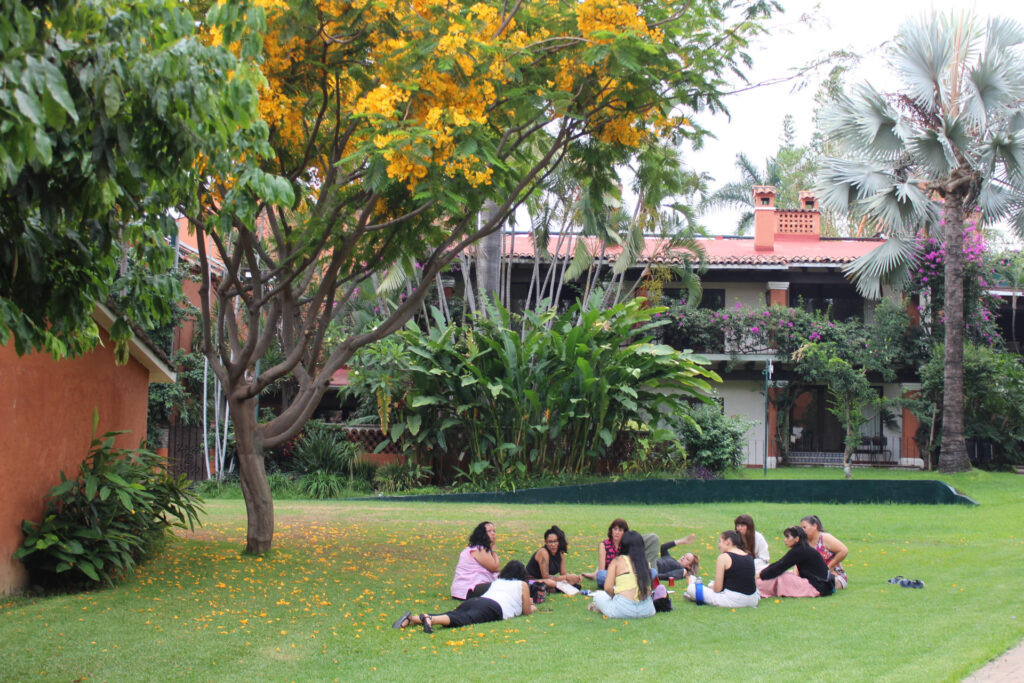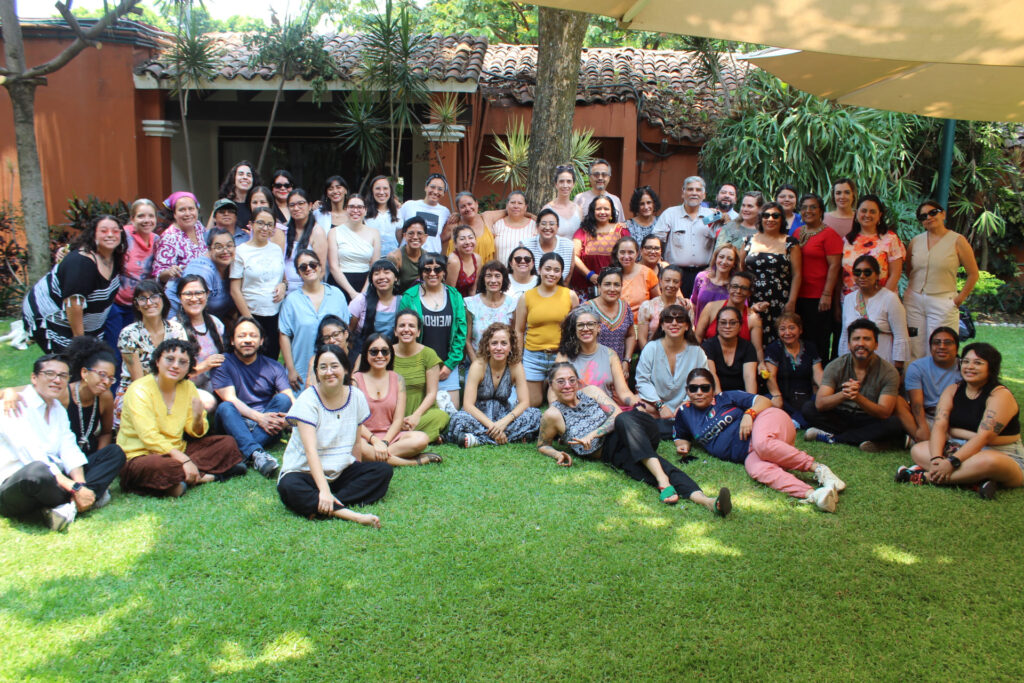Reflections on Money, Power, and Philanthropy: A Feminist Perspective in the Defense of Human Rights
From a young age, my parents taught me that asking for money was wrong. That it was undignified. Because money could only be obtained by working hard, through great effort; only then could I be successful. Asking for help would reveal precariousness, and precariousness and poverty did not look good, they told me. This unquestionable message, imbued with values, shaped my relationship with money. However, it was not only these direct messages but also, the family and social dynamics that contributed to our relationship with money and our financial practices today.
For as long as I can remember, my mother has worked hard—very hard—"helping my father" in the family restaurant, selling jewelry, juices, and irons on her own; and also taking care of ALL the household chores, of four children, and a husband. My mother, without saying it, taught me that money gives autonomy, that having your own savings set aside is a breath of freedom, the possibility of having power and choice in something: whether to buy myself something nice, to pay for a taxi, a move, or a ticket when I wanted to leave a place. But despite contributing more than 50% to the family economy, the financial decisions were not hers. She did not decide how or when to buy a house or a car. That, without question, fell to the man of the house.
I remembered and shared all this with my compañeras (my colleagues) in defending human rights at our annual convening of 30 partner organizations in Mexico planned by the Gender Equity team of the Gender, Race and Power program at HIP. They also shared their first experiences with money: one sold essays to buy Alanis Morrisette CDs and be invited to parties; today she is a renowned journalist who promotes feminist journalism in Latin America. Another worked afternoons in her grandparents' stationery store and realized, in that moment, that her pay was always managed by them, which continued into her youth; today she is a labor rights defense lawyer, and considers it a kind of dare to build and stick to her personal budget. Another colleague recounted that in her home, her parents never talked about scarcity "so as not to worry the children," so it seemed easy to get things until, as an adult, she began to work and it filled her with anxiety to see that for her it was a challenge to buy things.

As a group we had never talked about this and its importance. Talking about money continues to be a private matter, to be spoken of softly, because in Western and capitalist culture, money is still directly related to success. The culture of meritocracy prevails, but by reflecting on our history and how this and other social structures have shaped our financial behavior, we will be able to alter its significance and better position ourselves to manage not only our finances but also the management of resources in the organizations where we work.
The meeting was designed for this: to have these difficult conversations in a safe space, to facilitate honest and crucial dialogues about our relationship with money, about philanthropic practices, organizational dynamics, the distribution of resources and fundraising— all from a feminist perspective where the critical analysis of gender, race and territorial relations and inequalities are present.
The most recurring questions were: How do we position ourselves, as human rights defenders in Latin America, to funders who mostly come from the global North? How de work to dismantle colonialist paradigms where organizations must “ask” for resources and constantly be thankful for the funding; and where only those with privileges such as speaking English, living in capital cities, being white, participating in exclusive spaces to generate connections, and speaking a certain technical language are able to secure decent funding?
There were other questions that rattled our heads and hearts: How do we wield resources? How do our own fears and histories influence our decisions about the distribution of money within organizations? Do we prioritize decent salaries? What are our decisions on how much money the management versus the field staff working with the populations should earn based on? Do we deserve to earn a lot for human rights defense work? How much is a lot? What are those subjectivities—oppressions, emotions—behind building budgets and the fear of not having enough money? These are all difficult questions that we must raise and consider.
At the meeting, we talked about the personal; what grassroots organizations are called to do. However, this is a reflection that all actors (donors, companies, intermediary organizations) in the philanthropic sector must have. The sector should strongly question the responsibility of those who provide the money to transform power dynamics, to consider their role in social and political-economic dynamics that generate violent structures in Latin America and the Caribbean, and not to replicate colonialist practices. It is also necessary to reflect deeply on how personal history and privileges affect the decisions and ways in which money is granted.

In my 15 years of experience working in civil society organizations, I have participated in several courses and processes to create and implement fundraising strategies, but only now have I been able to look inward and discover that the relationship with money is also a fabric of emotions and histories, and as we bring those to light, other transformations will be possible.
Thank you to the Sukuamis Cooperative of Knowledge and Healing for guiding us throughout this convening.
Thank you to the human rights defenders for the wisdom and openness to walk these issues together.
...
Listen to the testimonies of the leaders who attended the gathering here.
